L.A. Public Works Head Repenning Talks Challenges, Goals
Waste360 recently spoke with Repenning about how Los Angeles plans to turn its franchise system into a model program and how the city is working to reach its goal of achieving zero waste by 2050.

Los Angeles, one of the biggest playing fields in the waste and recycling industry, is a city that’s ahead of the game when it comes to things like organics diversion and recycling policies. And one of the people leading the development and implementation of those successful waste diversion policies and initiatives is Heather Repenning, a commissioner for the L.A. Department of Public Works.
Before joining the L.A. Department of Public Works, Repenning held several roles throughout the 11 years that she worked for L.A. Mayor Eric Garcetti. In those roles, she gained ample experience in both politics and government, which eventually led her to join the L.A. Department of Public Works about two years ago.
Since becoming part of the L.A. Department of Public Works team, Repenning has helped launch the city’s new franchise system, a handful of new waste diversion policies, two electric refuse collection vehicle pilot programs and much more.
Waste360 recently spoke with Repenning about how Los Angeles plans to turn its franchise system into a model program, how the city is working to reach its goal of achieving zero waste by 2050 and which of New York City’s waste and recycling operations could be adopted in L.A.
Waste360: Before you became a commissioner of the L.A. Board of Public Works, you served in a variety of roles working with L.A. Mayor Eric Garcetti. Tell us about that and how that experience helped lead you to your current role.
Heather Repenning: My background is in literary studies, but I actually got my start in local government with Eric Garcetti, the man who is now the mayor of L.A. I worked on his first campaign when he was running for City Council, and I continued working with him on both the governmental side and the political side when he was elected.
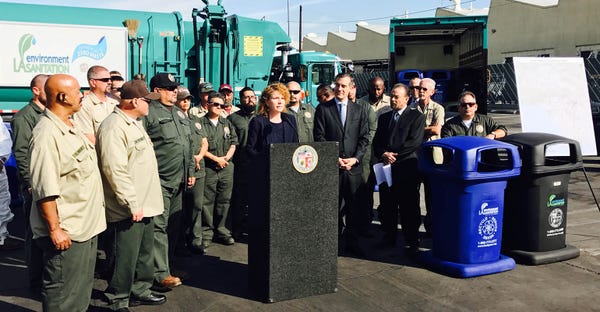
When I began working for Mayor Garcetti, I found that it takes both time and experience to reach a point where you can see how you’re going to make a change and how you’re going to make things better for taxpayers. While I sort of fell into politics and government, it has turned into a career that I really enjoy.
About two years ago, I made the move to become a commissioner of the L.A. Board of Public Works, which is unlike any other department in the City of L.A. because there is no general manager, and the department is governed by a board. The board is made up of five people, including myself, and we work to set policy, approve any expenditure more than $20,000 and manage the areas of L.A. Sanitation, engineering, street services, street lighting and contract administration. In addition, we work to ensure that we are providing transparency and accountability so that the public gets the best out of the core services that the city provides.
Waste360: Since becoming a commissioner of the L.A. Board of Public Works, what challenges have you faced?
Heather Repenning: The biggest challenge I have faced is data. Mayor Garcetti is one of the biggest proponents of open data in the country, and it has been a big challenge for us to be able to embrace his commitment to providing data to the public and to using data to judge the success of the city’s programs.
There was an article that was published in the Los Angeles Times that highlighted some of the city’s data and showed that there was a disparity in how we were handling illegal dumping in different parts of the city. It wasn’t a very flattering view of our services, and that article really pushed us to proactively begin collecting data around cleanliness.
To showcase the new data we were collecting, we launched cleanstreetsla.com, an online platform that features data and ratings of every street in the city. Each quarter, we go through that data with all of the relevant service providers, and we develop plans to improve cleanliness in areas where we are seeing consistent challenges. It’s hard work to make changes in some neighborhoods, but when the changes are made the benefits are huge.
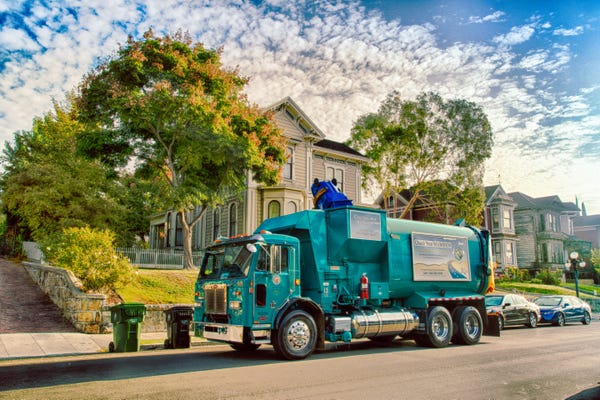
Waste360: In July, L.A. rolled out its new franchise system. Since it launched, concerns have been raised over costs and delayed services. How is the city addressing those issues?
Heather Repenning: What we are doing is pretty unprecedented, and there are definitely challenges because of that.
On the service side, we have had a lot of missed collections, but given the scope of what we are trying to do, we estimate that more than 50,000 accounts will move from one hauler to another within an eight-month period. It’s a very fast transition process, and waste collection is a very logistically complicated operation. When you think about all of the new bins that need to be delivered, all of the new keys that need to be collected to unlock gates, all of the drivers that need to learn new routes, etc., I actually think that we have a pretty good response rate when it comes to responding to missed collections.
One of the commitments that we have made as a city is to manage customer care for the entire program. When customers have a problem, they call us, we relay the service request to the proper hauler and then we circle back with the customer to make sure that their problem was resolved. If the hauler happens to be unable to complete the service request within 24 hours, we send our own fleet out to do the service.
We understand that missed collections are an inconvenience for customers, and we have asked customers to be patient with us over the next few months while the transition is happening. In the end, we hope that the customers will see that all the new routes and new accounts will be part of a smooth, responsive system with better customer service than L.A. had prior to the franchise system.
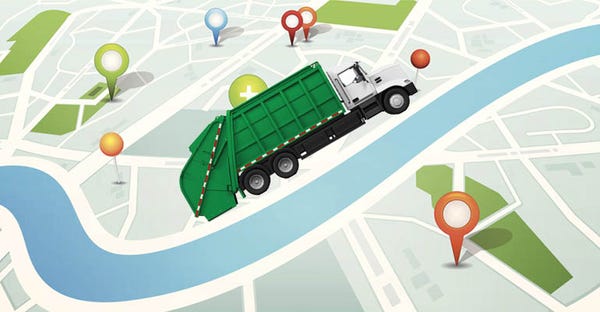
On the costs side, the transparent and predictable rates we established in our contracts are the same for everyone across the city. Before the franchise system was developed, L.A. was a free market, and customers were paying different rates in the city based on what they were able to negotiate with their providers. It was very competitive, but I think the rates that the customers were paying before were unsustainably low because they weren’t paying for recycling.
The new franchise program is based on recycling, and those costs are part of that rate. Recycling is offered for free, so the base charge is based on the service levels of the black bin. If customers want to get their costs down, they need to rely less on the black bin and more on the blue bin.
One of the things that we have been trying to do to increase recycling efforts and achieve savings for customers is to have customers meet with their hauler to do a waste assessment and come up with a plan to increase recycling at their property and reduce the reliance on the black bin. We would really like to see more of this as the transition period moves forward, and we will continue working with the haulers to make sure education efforts like this actually happen.
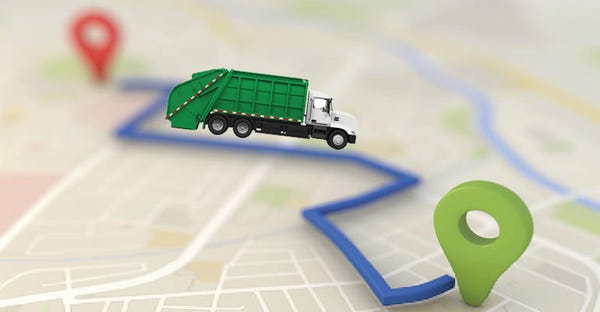
Some of the companies in our franchise program have been part of other franchise programs, where the moving of customers happens through an auto billing mechanism and customers are mailed a bill. But with our program, we are approaching things in a different way by providing customers with in-person assessments and recycling training. It’s really important for the haulers to make these connections with their customers because we have a diversion requirement and if the customers don’t recycle a certain amount than the haulers have to pay liquidated damages to the city.
As a city, we have a responsibility for making sure that our franchise system is successful because we know cities like New York are watching us for guidance. We believe it’s a model program for how cities can meet environmental objectives and modernize the industry, and we plan on proving that as we move forward with our transition.
We have the ability through this program to actually collect data and see first-hand how the system is working. Once we get past some of the initial challenges of starting up and educating customers on the changes and what we are trying to accomplish, we will have a model program that other cities can learn from and try to emulate.
Waste360: When it comes to collection and processing, what is the hardest thing about managing waste and recycling in a city like L.A.?
Heather Repenning: The biggest challenge is that the city is really big and that we have to build waste and recycling disposal facilities based on available space and geography, which makes our routes longer. In addition, the city is very diverse and many different languages are spoken here, so education and training on recycling can be challenging.
Right now, we are beginning to focus on food waste diversion, and that’s just one more area where we need to develop proper training and education materials so that people are aware of what can and cannot be placed in collection bins.
Another one of the ongoing challenges that we are working toward overcoming is contamination. With our collection program, residents receive a free recycling bin and a single trash bin. If they need more than one trash bin, they pay an additional cost. This concept works well for the most part, but some residents are using their recycling bins for trash because they simply cannot afford another trash bin. We plan on addressing this issue as we take the next step in improving our recycling process.
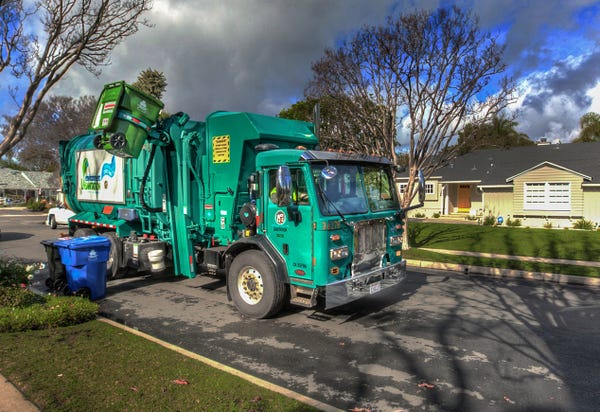
Waste360: L.A. is gearing up to test electric refuse collection trucks from BYD and Motiv. Tell us a little bit about that and some of the challenges that come along with managing a fleet and keeping it up to date.
Heather Repenning: The city of L.A. is very interested in electric vehicles, and it’s something that we are looking at as part of our citywide sustainability plan.
Earlier this year, L.A. Sanitation tested BYD’s Class-6 collection vehicle operating 100 percent on electric. This zero-emissions vehicle has a regenerative braking system, a payload of two tons, a range of 85 miles and a top speed of 56 mph.
The findings from this testing indicated that this electric solid resources collection vehicle was capable of operating on different terrains, including both hills and flat areas, and could accommodate two loads per day (total up to four tons) with no instances of the truck running out of power while on the route and no major mechanical issues.
Now, we are teaming up with Motiv to conduct evaluation testing of two refuse collection vehicles that are 100 percent electric. The testing will begin in early 2018, and there are a few challenges that we expect to come across during the testing. One is performance. We need to make sure that this type of equipment has enough power for our operations and enough power to operate the arm, compact the trash inside the hopper and reject the load at a disposal site. The second challenge is geography. About 40 percent of our city is comprised of hilly terrane, so we need to make sure that those trucks can get up the hills with ease. The third challenge is cost. Each vehicle costs more than twice that of a clean fuel vehicle that operates on natural gas, but we hope that if we can successfully test and find a piece of equipment that works for us that we can go back to our air quality management agencies and try to get them to set aside funding to offset the cost of the vehicles. The last challenge is infrastructure. We currently don’t have charging stations or mechanics equipped to service the trucks at our facilities, so being able to provide enough charging stations and to maintain enough trained mechanics is going to be key.
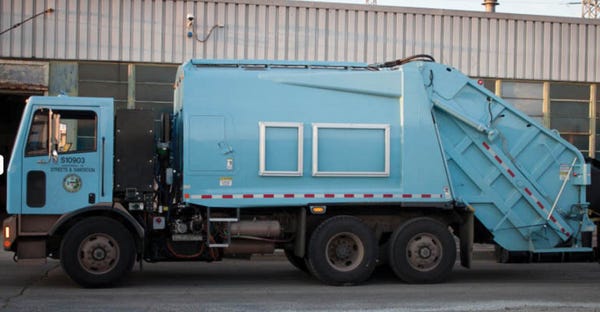
In terms of other fleet issues, we are faced with evaluating new technologies, reducing preventable accidents and adjusting to new or proposed environmental legislations. These are challenges that we continue to work through every day, and challenges that most cities and haulers are faced with.
One of the cost-saving efforts that we have done in recent years is switching over to clean fuel liquefied natural gas and compressed natural gas. Since 2001, we have reduced our sanitation fleet emissions by 13 tons of particulate matter and 700 tons of oxides of nitrogen. In addition, we have saved more than $3 million in overall fleet costs.
We are also doing another pilot project with BYD, which will consist of two fully electric, zero-emissions, Class-8 solid resources collection trucks. Each truck has a payload of nine tons, with an anticipated range of 75 miles and batteries that can be charged overnight.
This demonstration project will involve testing to validate and document the operational feasibility and commercial readiness of the two electric refuse collection trucks, one of which is configured with an automated side-loader body and the other which is configured with a front-loader body.
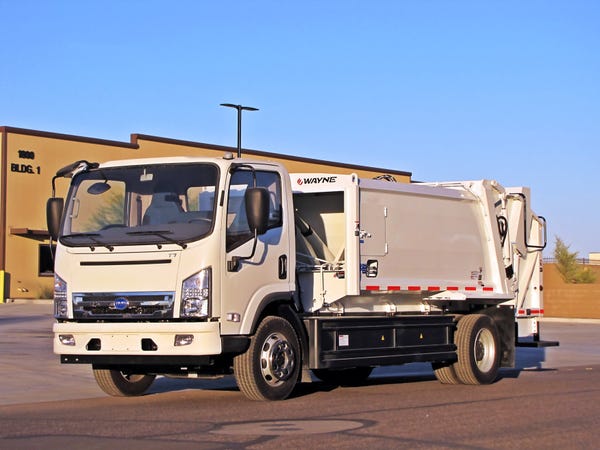
L.A. Sanitation will own and operate both electric refuse collection trucks throughout the demonstration and thereafter. Successful testing of these electric refuse collection trucks will pave the way for future acquisitions of additional electric vehicles.
It’s anticipated that L.A. Sanitation will begin performance testing in late 2018 upon delivery of BYD’s two electric refuse collection vehicles. We are currently seeking funding from both the Air Quality Management District and the California Energy Commission for the pilot program and vehicles.
Waste360: Are there concerns about environmental justice in L.A., i.e., issues around where waste facilities are sited? If so, how have the concerns been addressed?
Heather Repenning: Unfortunately, waste facilities, along with a variety of different types of land use, end up being sited in more working-class neighborhoods. But, as we move toward a more regulated and cleaner industry, we hope that the facilities and the jobs that come with them will become more desirable.
As part of our new franchise system, we are requiring that all facilities being used in the program are both certified and enclosed. In addition, all facilities must be clean and safe. These requirements will not only improve the facilities, but they will improve workers’ safety as well.
Another thing that we are focusing on is building more infrastructure and additional recycling infrastructure and facilities to handle organic waste and food waste. Permitting and citing is a big challenge that comes along with that, but we are committed to making sure that those facilities are cited in areas where they are needed and in areas where the waste is coming from. With this mindset, I think we can shift away from citing facilities in mostly working-class neighborhoods, which will resolve some of the current concerns about environmental justice.
Waste360: The city has a goal of reducing its landfill disposal by a million tons per year by 2025. How is the city planning to achieve that goal?
Heather Repenning: We anticipate that our new franchise system will take a large amount of waste out of landfill, so we are really focusing on the organics diversion part of things. Organic waste can make up anywhere between 20 and 40 percent of what’s going to landfill, and we are focusing on figuring out where we can make reductions and where we can capture edible food to support food recovery programs.
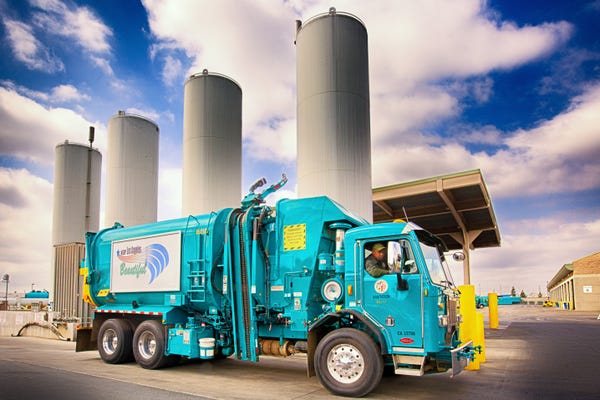
In L.A., a lot of residents have backyards and are interested in composting, so we are ramping up what we are doing on a composting level and looking at new ways to digest that material.
Waste360: California has some of the most ambitious waste reduction goals of any state in the country. And L.A. specifically has set a goal of reaching zero waste by 2050. What is the path to getting there?
Heather Repenning: First and foremost, we are focusing on organics diversion. Besides that, we are focusing on expanding and developing infrastructure and policies to require waste diversion and extended producer responsibility.
We currently have a couple of big state mandates that we are trying to meet—AB 341, which requires no less than 75 percent of solid waste generated in California be reduced recycled or composted by 2020, and AB 1826, which requires businesses to recycle their organic waste on and after April 1, 2016, depending on the amount of waste they generate per week. As these mandates start to gain traction, we will work toward implementing new policies to further improve waste reduction.
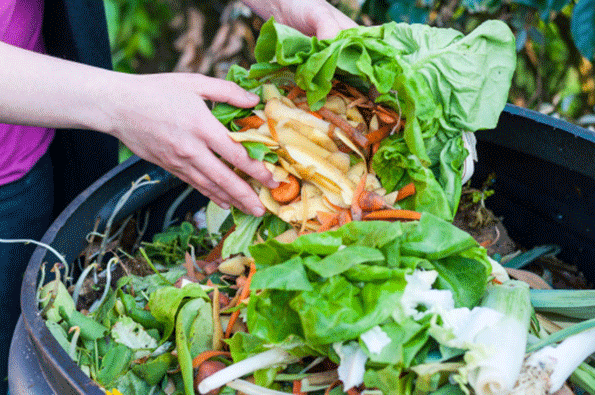
California is really a state that’s setting the bar in terms of waste diversion regulations, and in order to meet our waste diversion goals, we need people to look at the waste problem like they looked at the drought that we experienced a few years ago. Since the drought, Angelinos have managed to reduce water consumption by 20 percent, and I think we can see results like that if Angelinos start to pay more attention to what they are throwing out.
Waste360: What’s the status of L.A.’s consideration of waste-by-rail proposals? Is that still on the table?
Heather Repenning: This was a concept that we looked at about 15 years ago when there were a lot of concerns raised about running out of landfill space. We released a request for proposal seeking disposal options, including waste by rail, but robust recycling efforts by city residents caused the shortfall in landfill space to not materialize.
We are really trying to push recycling, and if 30 percent of the material in our landfill can be composted or anaerobically digested than we can divert that material from the landfill and not have to worry about whether we are going to run out of space in our landfills.
That being said, our current contracts for city trash will expire in 2021, and we will begin looking at alternative options, including waste by rail, in the near future.
Waste360: What is the public works’ role in managing waste and recycling at events in L.A.?
Heather Repenning: If it’s a community event or public event, L.A. Sanitation provides services. But if it’s an event at a commercial facility, the hauler that has a contract with that facility will provide services.
One of the cool efforts we are seeing in L.A. right now is nonprofits doing great work with food recovery. There is one group that works with the film industry to capture edible, catered food leftover on sets. This is huge because often so much food is catered and very little is eaten so it’s nice to see that leftover the food is making its way to the needy.
Waste360: You recently met with the New York City Department of Sanitation to look at its operations. Tell us a little bit about that meeting and some of the operations that you feel could be adopted in L.A.
Heather Repenning: New York City has rolled out a residential food waste program, and we are not there yet. We are doing a couple of pilot projects right now, and based on what the findings of those pilots are, we will have a better sense of direction in terms of how we want to approach food waste collection.
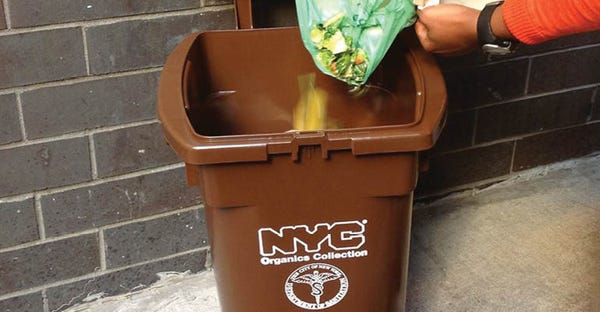
While I was in New York, I got to visit some of the sites where the city is handling the food waste material, including a wastewater treatment plant where food waste is injected into digesters. That’s something that we are looking at doing in L.A., so it was nice to see how that process works.
New York City is a dense city that has very little storage space and four seasons to deal with, so I think we were definitely surprised to see firsthand what it truly means to collect waste in such a dense, urban environment.
Waste360: Tell us about some of the mentors in your life and how they have helped shape you to become who you are today.
Heather Repenning: My mom is someone who I look at for an example of how to be an honest person and a person of integrity in the world. In addition to her, there are a couple of women who are part of Mayor Garcetti’s administration who have supported me and taught me a lot over the years.
The First Lady of Lost Angeles, Amy Elaine Wakeland, is someone who has supported me personally. She is very committed to gender equity, and she has helped create a focus in this administration on policies that ensure that we can achieve equity in context of city government for both women and girls. She has been a great mentor to me, and we share a lot of the same views.
Mayor Garcetti’s Chief of Staff Ana Guerrero is another one of my mentors. I have worked with her in many different contexts, and she has a real gift for moving people and moving government.
Waste360: What advice would you give to someone looking to have a career in the waste and recycling industry?
Heather Repenning: Go for it. Waste disposal is a very basic part of existence, and you can have a huge impact on the environment and the quality of life by working to improve the concept of waste disposal.
In the waste and recycling industry, there is a lot of room for innovation and growth. There are also many opportunities to create satisfying careers in this industry.
Waste360: If you didn’t join the waste and recycling industry, what industry do you think you would be working in?
Heather Repenning: I would maybe get involved in the wastewater or storm water side of things because I currently enjoy the work I do around water, wastewater and storm water, which are very important in L.A. given our geography. I also really love politics and political campaigns, so I am sure I would be doing something along those lines as well.
In another life, I would be living in a cabin writing a novel.
About the Author
You May Also Like




.png?width=300&auto=webp&quality=80&disable=upscale)